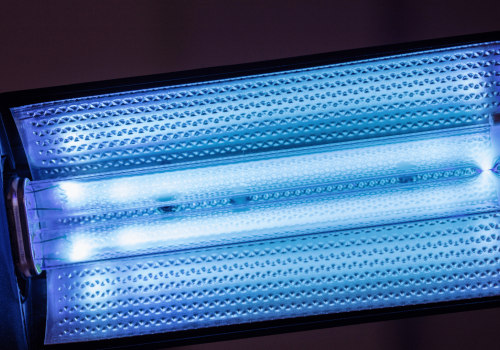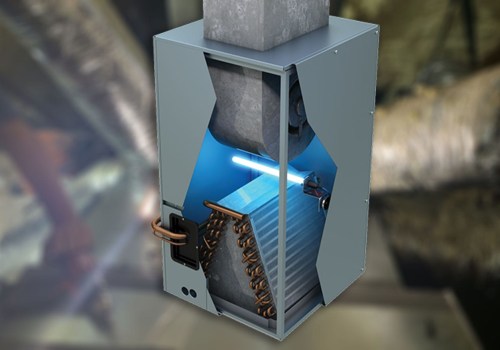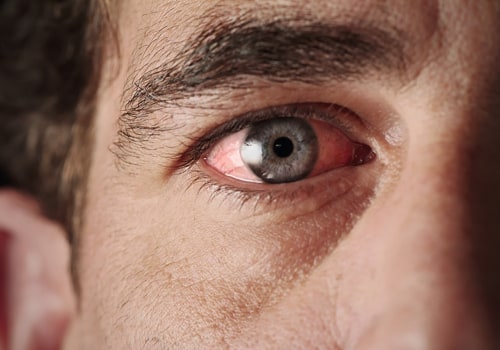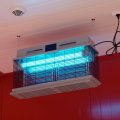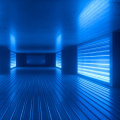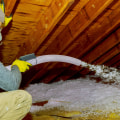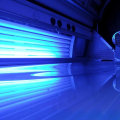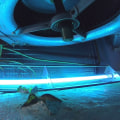Expensive Air Filters: UV Light Installation Insights
Expensive air filters often prove worth the cost because they capture more particles, allergens, and odors. This improves indoor air quality significantly.
High-quality options, such as HEPA or activated carbon filters, can help reduce health issues linked to dust and pollen. Adding UV light systems enhances protection by neutralizing harmful microorganisms.
Although premium filters come with higher upfront costs, longer lifespans and fewer replacements can lead to savings over time. Better air quality might also lower healthcare expenses.
If you want to learn more about different filter types and installation tips, plenty of information is available for evaluation.
Key Takeaways
High-quality air filters, like HEPA and activated carbon, can improve your home's air by removing allergens and odors.
These filters last longer, so changing them less often saves you time and money.
UV light technology also helps by killing harmful bacteria, giving you extra health benefits.
When thinking about whether expensive air filters are worth the cost, it's important to consider your specific air quality needs. This allows you to select the appropriate filter and maximize your investment.
Understanding Air Filter Types
Understanding different air filter types significantly impacts indoor air quality. HEPA filters and activated carbon filters frequently come up, each serving unique functions.
HEPA filters trap at least 99.97% of particles that are 0.3 microns in size, making them effective for capturing allergens such as dust, pollen, and pet dander. For individuals with allergies, investing in a HEPA filter is a wise decision.
Conversely, activated carbon filters specialize in eliminating odors and harmful gases. They operate using adsorption, where the carbon's porous structure captures unwanted molecules, leading to fresher, cleaner spaces.
While HEPA filters excel in removing particles, activated carbon filters work alongside them to address gaseous impurities.
Selecting an air filter requires careful consideration of individual needs. For allergy struggles, HEPA proves most effective. However, if odors pose a challenge, activated carbon might provide relief.
Ultimately, understanding these filter types empowers informed decisions for healthier indoor environments.
Benefits of High-Quality Filters
Using high-quality air filters can greatly improve the air in your home. Premium filters work better because they capture more particles from the air than standard filters do.
Selecting a top-quality filter means gaining a defense against dust, pollen, pet dander, and other allergens that may impact health.
Furthermore, these filters typically last longer, so replacements occur less frequently, saving time and effort over time.
This durability often leads to consistent performance, maintaining effective allergen reduction throughout the filter's life.
The Role of UV Light
Using UV light can greatly improve air filtration systems by killing harmful germs. This technology sends out ultraviolet rays that damage the DNA of bacteria, viruses, and mold spores. This damage stops them from multiplying and making people sick.
Integrating this advanced purification method into an existing system goes beyond merely filtering particles; it actively eliminates potential health risks.
Utilizing UV light significantly enhances the quality of indoor air, especially in areas prone to allergens and germs. Homes with pets, allergy sufferers, or individuals with respiratory problems gain substantial advantages, as airborne pollutants can exacerbate their symptoms.
Low maintenance is another advantage of UV light systems. Unlike traditional filters that require frequent replacements, UV lamps often last a year or longer before needing a change.
Monitoring performance is essential, as effectiveness may decrease over time.
Cost-Benefit Analysis
A cost-benefit analysis of air filters shows clear advantages that make the investment worthwhile.
Conducting a price comparison between standard and premium filters reveals that although initial costs for high-end options may be greater, long-term savings often justify this expense. Quality air filters generally last longer, require fewer replacements and enhance HVAC system efficiency, which can lead to reduced energy bills.
Effectively capturing allergens, dust, and other pollutants, these filters improve indoor air quality, benefiting health and well-being. Better air quality can result in fewer respiratory issues and lower healthcare expenses over time.
Consider advanced filters with features like UV light installation, which further boosts their effectiveness in eliminating airborne pathogens. Such options provide peace of mind, particularly for families with vulnerable members.
While the upfront price might cause hesitation, recognizing potential long-term savings from decreased maintenance, improved health, and energy efficiency highlights the value of choosing a more costly yet beneficial solution for your home.
Making the Right Choice
Selecting the right air filter can seem daunting due to numerous choices, but concentrating on specific needs simplifies the process.
Begin by assessing your surroundings; if pets or allergies are present, look for filters with higher MERV ratings for improved filtration. Generally, higher MERV ratings signal better performance, but remember filter longevity; a more effective filter may require more frequent changes, so find a balance between performance and maintenance demands.
Before installation, keep several tips in mind. Always turn off the HVAC system beforehand, and check the airflow direction marked on the filter. This ensures optimal performance and prevents airflow problems.
Measuring the existing filter is smart to confirm the correct size purchase; a poorly fitting option can cause air leaks and lower efficiency.
Ultimately, the choice should reflect personal priorities, whether focusing on cost, efficiency, or maintenance ease. By thoughtfully considering unique situations and following these guidelines, selecting an air filter that fulfills needs without overspending becomes achievable.
Frequently Asked Questions
How Often Should I Replace My Air Filter?
Replace air filters every 1 to 3 months, based on lifespan. For optimal performance and air quality, check filters monthly and keep HVAC systems clean.
Can Expensive Filters Improve My HVAC System's Efficiency?
Expensive filters can improve HVAC system efficiency. Their high-quality performance often results in healthier air and lower energy costs. Conducting a cost analysis ensures the investment fits within your financial plan.
Are There Specific Brands Recommended for High-Quality Air Filters?
Choosing air filters involves considering brands like MERV 13 or HEPA, known for filter longevity. Brand comparisons can provide insights into performance, efficiency, and overall value, helping to make an informed decision.
Do Expensive Filters Reduce Allergens Effectively Compared to Cheaper Options?
Expensive filters typically provide improved efficiency, which leads to better allergen reduction. Users often experience a noticeable change in air quality, as superior materials trap smaller particles that budget-friendly options may overlook.
Is UV Light Installation Compatible With All HVAC Systems?
UV light installation may not suit every HVAC system. Checking your system's specifications is essential, along with consulting an expert. Regular maintenance of HVAC equipment ensures the benefits of UV compatibility lead to cleaner air.
Learn more about HVAC Care from one of our HVAC solutions branches…
Filterbuy HVAC Solutions - Miami FL - Air Conditioning Service
1300 S Miami Ave Apt 4806 Miami FL 33130
(305) 306-5027

